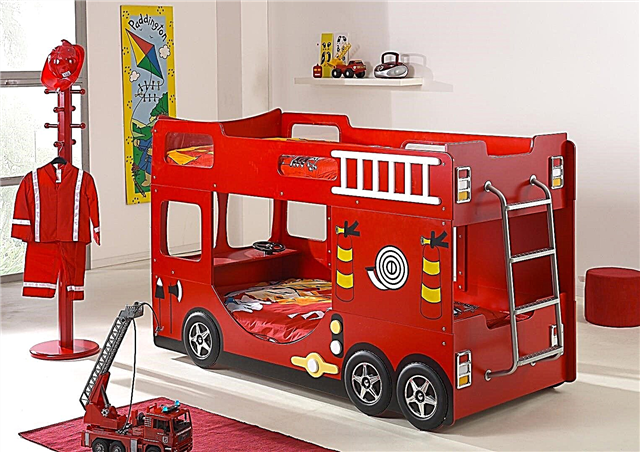The number of bowel movements per day in a child decreases as they grow older. Some babies poop every few days, others many times a day. Also, during the first year, there will be a change in stool color, from brown to yellow and possibly green. Changes in color and texture are usually not a cause for concern, but additional information about your child's health.
The texture, smell, color of the stool can speak of a person's health. Therefore, when the chair suddenly turned black, this is an occasion to think about the reasons for this phenomenon. Perhaps this is due to the usual and harmless things. For example, the use of certain foods.
But it happens that a black stool in a child indicates serious diseases that require urgent medical intervention. There are also a number of chronic diseases and conditions when blackened feces are a dangerous and very suspicious symptom.
The normal shade of stool ranges from yellow-brown to dark brown, and changes slightly. It depends on eating habits and personal characteristics of the body. The final color is formed due to the presence in the stool structure of products processed by intestinal bile and undigested food particles that have made up the diet of a particular person in the past few days.
Normal baby stool
Stools in breastfed babies are yellow or slightly green and have a soft texture. It can be quite liquid, it looks like porridge in consistency. There are many normal stool shades in babies. One of them is a greener shade, which means that Mom ate something not quite typical for her diet. When the baby has no other symptoms, there is no need to worry.
As a rule, each parent knows what color of stool is normal for his child. Therefore, when feces become unusual, it is impossible not to notice.
Newborn's black stool
The very first thick, black, sticky deposits in a baby's diaper are far from the feces that will follow. Your baby's first stool is called meconium.
Meconium fills the intestines of all newborns. It gets its distinct color from bile, a fluid produced in the liver that aids in digestion. In addition to bile, meconium contains amniotic fluid, lanugo (the thin hair that covers your baby's body when inside the uterus), dead skin cells, mucus, and bilirubin. Most of these ingredients are harmless, but too much bilirubin in the blood can lead to jaundice.
Meconium stools are rapidly replaced by transitional stools 3 to 5 days after birth. This stool is slightly weaker and more greenish brown in color. It is a "transition" to the usual milk stools, which can be seen around the sixth day.
If your baby is still having black stools even after three days, or after transitional stools after five days, this may be a sign that the baby is not getting enough food and you should talk to your pediatrician right away.
A one-year-old's stool that looks black, tarry, or bloody can be quite intimidating for parents, but does not always indicate a serious illness.
Food
You don't need to worry about the occasional black stool. Black feces does not always mean there is blood in it. Discoloration can only be attributed to the diet of a small child. Red beets, prunes, pomegranates, red grapes, black currants, blueberries and other fruits, berries, vegetables can change the color of the stool. It is enough to stop eating these products, and after a couple of days the feces will return to their normal habitual color.

Do not worry if the usual color of black inclusions are present in the stool - these are simply undigested food particles that have changed their color in the digestive tract.
A common cause of strong concern is the presence of inclusions in the stool that outwardly resemble small black worms. They are usually confused with helminths and go to the doctors to get tests and start deworming. It is more likely that these are the fibers of a previously eaten banana. Real parasites have a completely different color - white or yellowish.
Medicines
Black stools in babies may suddenly appear after taking certain medications. For example, the drugs used to prevent and treat anemia include iron, which stains the stool this color. Vitamin complexes, drugs with bismuth, and activated carbon have the same effect.
If you find that your child has black stools after using any medication, you should carefully read the instructions for them.
It should be noted that drugs containing acetylsalicylic acid, as well as some anti-inflammatory drugs (Ibuprofen, Diclofenac) and drugs that reduce blood clotting, cannot stain the stool itself. However, their use sometimes causes internal bleeding.
Therefore, if a child is found to have black feces, especially in the form of diarrhea, against the background of treatment with these drugs, you should immediately seek medical help.
Bile
Sometimes the color of the stool is not black, but it looks like that in low light. This usually happens when the child has dark green stools due to bile impurities and may appear very dark. If so, you can confirm your doubts by rubbing a piece of stool on something white, or by looking more closely at it under bright light.
Gastrointestinal bleeding
When a child has other symptoms along with blackened stools - fever, pain, prolonged tearful crying, vomiting - this indicates bleeding in the upper gastrointestinal tract.
Various causes that can cause bleeding:
 stomach ulcer;
stomach ulcer;- gastritis;
- Mallory-Weiss break;
- foreign body or organ trauma;
- ischemia of the intestine (when blood does not supply blood to the intestines);
- vascular malformation.
Every parent, when he notices a black stool in a baby, begins to worry about what is causing these changes. Don't panic ahead of time.
Carefully study your child's diet during the last days. If the food products mentioned above (beets, currants, pomegranates, etc.) were present, then it is more than likely that it was they who colored the stool with an unusual black color. Perhaps the reason is in the use of certain drugs (they were also mentioned earlier). In a case where a child has recently eaten regular foods and has not taken any medication, suddenly blackened stools are likely to indicate the onset of life-threatening conditions. And the visit to the doctor cannot be postponed.
Monitor the texture and color of your stool for several days. If the causes are harmless and not dangerous (for example, the use of certain foods and drugs), then the stool will return to normal no more than 2 days after their exclusion. In the case when the feces have turned black due to serious illnesses, this will not happen.
Pay special attention to the condition of the child whose stool suddenly turns black. Does the kid look sick? How was he feeling in the weeks and months before the stool blackened?
When the causes of blackening of the stool are harmless, then the child's well-being does not change, he feels healthy and full of energy. When the appearance of black feces is accompanied by constipation, bloating, vomiting, nausea, anemia, heartburn, abdominal pain, and other suspicious painful signals that increase in intensity over time, it is most likely that it is a serious illness or a complication.
When to seek medical attention?
Black stools in babies are not necessarily a sign of illness, but you should talk to your doctor if the problem persists. The color usually returns to normal after a few days, but if it doesn't, it's time to see a doctor.

The doctor will confirm if there is indeed blood in the stool. The specialist will also examine the outside of the anus to determine the true cause of the bleeding. Sometimes a rectal exam is done to confirm the diagnosis.
Your healthcare provider may recommend further testing if you are unsure of the cause of the bleeding. A colonoscopy will be scheduled to examine the interior of the lower intestine.
Other Baby Chair Facts Parents Should Know
Black stool in babies is a concern for parents, but you may notice other changes in stool consistency and color from time to time.
Red chair
This is usually blood, so it makes sense to talk to your doctor, especially when this change persists. The child may have a small crack on the inside of the anus when hard stool passes, which sometimes causes bleeding. If so, your doctor will recommend consuming more fluids, prunes, and fiber to help soften your stools.
Red stools can be the result of taking antibiotics that bind to iron.
Certain foods and beverages, such as red juice, can give the stool an appropriate color.
Green chair
Green stools are usually the result of stool moving too quickly through the baby's intestines. This is not a cause for concern, especially in infants. But the child must gain weight well.
Green stools can also be the result of eating high amounts of fiber (broccoli or other green vegetables). In some cases, the green color is due to the use of dyes in food or drinks that the child consumes.
Yellow chair
In addition to the black stool, the child sometimes has yellow stools. Don't worry about yellow stools if you are breastfeeding. Sometimes in a diaper after feeding it looks like mustard.
But see a specialist if yellow stools are accompanied by abdominal pain. This may be due to inflammation or irritation in the intestines.
White chair
While gray, or chalky, stools are usually not abnormal, they are often the result of the child eating something unusual. You must inform your pediatrician if this phenomenon is repeated. Rarely, this is due to liver problems or other medical conditions.
Thus, black stools are not dangerous by themselves. But this is a possible signal of serious diseases in the body that are life-threatening if timely assistance is not provided. On the other hand, this is often explained by the banal consumption of certain foods that stain the stool in an unusual color. In any case, do not be squeamish about examining the state of your child's stool. Nature is intelligent - it has provided a whole system of signs and signals that make a person wonder if his body is in order.

 stomach ulcer;
stomach ulcer;

